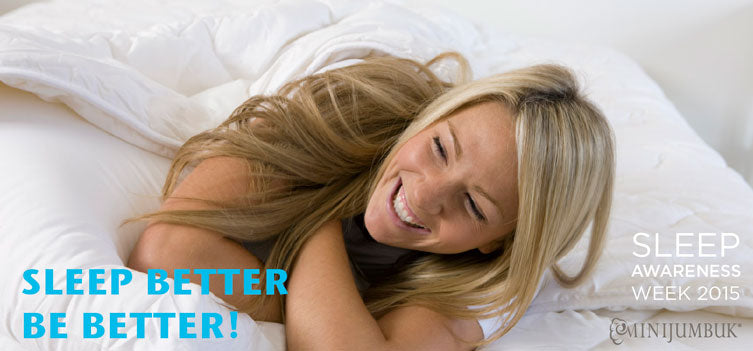It's that time of year again where we support Sleep Awareness Week which runs from 6th of July to 12th July. There are lots of tools on the Sleep Health Foundation's website including Sleep Surveys and Sleep Diaries that you can complete (https://www.sleephealthfoundation.org.au/sleep-awareness-week/about-sleep-awareness-week.html).
To be able to improve sleep it is important to understand the many things that affect sleep quality. Once any issues have been identified you can take a problem solving approach and make changes.
1) Maximise your sleep drive
Sleep drive should be low in the morning when you wake up and rise steadily so that sleep drive is high at bedtime. Sleep drive falls while you sleep (during the night or a nap). If you have an afternoon nap, or go to bed too early in the evening your sleep drive will be affected and may not be high enough to help you fall asleep and/or stay asleep.
2) Look after your body rhythm
Body rhythm is like a wave that is high during the day and dips at night. Good sleep is more likely if the body rhythm wave rides high during the day, helped by activity and exercise and getting good outdoor light. Morning light is especially critical, so consider breakfast by a window or outside. A strong body rhythm dip at night is also important and this is helped by setting a regular sleep/wake routine and not spending more time in bed than your daily sleep needs (e.g. 7.5 to 8 hours).
3) Minimise internal disruptions of the mind or body
Most disruptions that lead to poor sleep are internal to you and caused by your mind (mental disruption) or your body (physical disruption). Breathing problems such as snoring and sleep apnoea can be key causes of disruption to sleep, if you think you have a breathing problem it is important to consult with your GP. Other internal physical problems such as a jerky body or restless leg syndrome can also cause sleep issues.
For many people their mind is too active to fall asleep and this can be due to many different things.
- Keep stimulants (such as caffeine, nicotine and alcohol) to a minimum as these can keep you awake.
- Have a buffer zone of 1-2 hours between any stimulating evening activities and going to bed. Consider this time as a wind down time, a good time to turn off computers and mobile phones, instead consider relaxing activities such as watching pleasant TV programs, reading, taking a warm bath or shower or drinking a warm non-caffeinated drink.
- Don't take your worries to bed. Choose a time earlier in the day to write down your main worries and some ideas of how you could deal with them. Fold this 'worry page' over and remind yourself in bed that you will revisit the worries the next day. Try not to worry about things you can't change or are not your problem.
- Once in bed have some strategies to help you turn your thoughts to relaxing things, such as remembering a wonderful holiday or create an imaginary calm place. Some may find relaxing audio files may help, or progressive muscle relaxation for both the body and mind.
- If you have emotional issues such as depression or anxiety you may need to seek help from your GP.
4) Minimise external disruptions
If you are a light sleeper be sure to remove, reduce or avoid any persistent problems that could disrupt your sleep. Problems include pets, being too warm or too cold, feeling unsafe or a partner snoring. Ear plugs, eye covers, better curtains, heating, air-conditioning, night lights, door looks and separate bedrooms are all worth considering as options for dealing with these types of issues.
5) Develop a positive attitude to sleep
Sleep is a rollercoaster of light and deep sleep across the night and brief awakenings are a very normal part of a night's sleep. The key is to get back to sleep within a reasonable time. Sleep studies have shown that many poor sleepers believe they are awake when they are really in a light sleep.
- The more relaxed you are about moving in and out of sleep the more likely you are to move towards a better sleep.
- Think 'rest is good' and don't watch the clock. Be patient and don't expect too much, you can't force sleep.
- If you are unable to sleep and feeling frustrated, get out bed and do something relaxing until you feel more ready for sleep, but keep the lights dim.
- Avoid doing things in your bedroom that don't relate to sleep, eg watching TV.
- Don't think of yourself as having insomnia, instead focus on developing good sleep habits.
(Source www.sleephealthfoundation.org.au)



